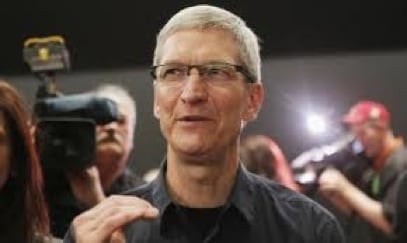
When a brand is in crisis mode, an apology can't be too far off. In its 30-year history Apple hasn’t apologized much, which can partially be attributed to its former CEO, Steve Jobs, who would bend to no one.
But under new CEO Tim Cook, Apple in the last two years has gone through a rough (apology) patch. In 2010 it expressed regret over a weakened wireless signal in its iPhones, and, in 2012, it apologized for a maps service that wasn’t up snuff.
On Monday though, Apple reached new heights of apologia when it said it was sorry to basically an entire country: China. “We realize that a lack of communication in this process has led the outside to believe that Apple is arrogant and doesn’t care or value consumers’ feedback,” Cook wrote in an open letter. “We sincerely apologize for any concern or misunderstanding this has brought to the customers.”
Yet as The New York Times reported, there may be more to Apple’s apology to Chinese customers regarding its warranty policy than meets the eye.
Apple’s path toward the apology started when China’s Central Television, the biggest state-run network in the country, criticized the American company’s customer service in China because it gave only a one-year iPhone warranty, while in China the law is two years. It also said that iPhone owners had to pay about $90 to replace a faulty iPhone back cover.
Apple’s response wasn’t too swift (breaking a crisis PR commandment). So, the other state-media elements dialed up the criticism, joined by several Chinese celebrities who posted on Weibo, China’s version of Twitter. But there's more to this controversy than wronged consumers. Analysts speculate that China is flexing its muscle against American technology companies at a time when members of the U.S. Congress have moved to restrict two of China’s biggest telecommunications equipment makers, Huawei and ZTE, from doing business in the United States due to concerns that they could engage in espionage, The Times said.
But Apple has been hugely successful doing business in China in 2012, with revenue topping $20 billion. To protect this lucrative market, Apple had no choice but to issue a sweeping apology. Last month PR News published “6 Elements to a Successful Apology Strategy.” Apple closely adhered to those elements—for one billion good reasons.
Follow Scott Van Camp: @svancamp01
